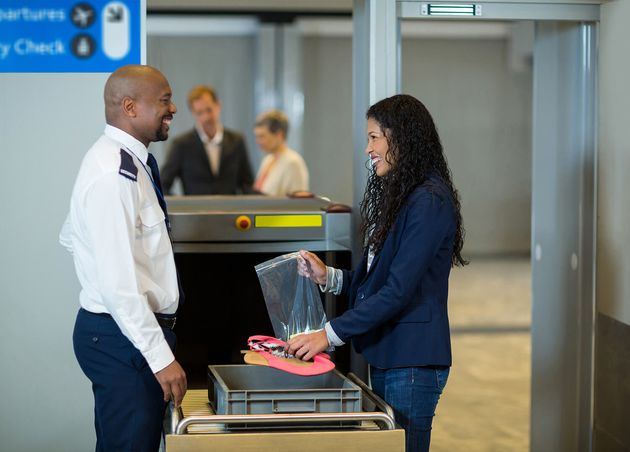Research Your Destination: A Complete Guide to Moving Abroad
Have you ever wished to go overseas, immerse yourself in a new culture, and expand your personal and professional horizons? For many of us, the thought arouses interest, excitement, and a hint of fear.
Moving overseas is a big decision that has to be well thought out and planned. This extensive guide provides vital perspectives and doable actions to steer your expedition. Let's understand the steps and important aspects of moving abroad, from managing logistical issues to comprehending cultural quirks.
🚀 Expat Fact!
A report from the International Organization for Migration claims that in 2019, about 272 million people lived outside their home country. This shows the rising number of people going abroad to find better jobs, schools, or ways of life.
#1 Research and Plan for Your Destination
Moving abroad is like doing something new. Research and planning are always the first step whenever you want to start a new venture. When you decide to move to another location, do detailed research about the visa details, customs, systems, job opportunities, costs, and overall vibe of the place. By researching, you will get an idea of how to plan accordingly. Planning is a must step before doing anything as it ensures each step is a success.
#2 Learn and Understand the Culture
When relocating abroad, it is essential to understand the culture of your new location to adjust successfully. This involves several essential areas:
- Language
- Learning the basics of the local tongue, or at least a few important expressions, is essential to comprehending and engaging with the culture. This covers both spoken and unspoken forms of communication.
- Learning the basics of the local tongue, or at least a few important expressions, is essential to comprehending and engaging with the culture. This covers both spoken and unspoken forms of communication.
- Social Norms and Values
- It's possible to prevent culture shock by being aware of politeness and rudeness, the significance of certain customs, religious views, and social hierarchy.
- It's possible to prevent culture shock by being aware of politeness and rudeness, the significance of certain customs, religious views, and social hierarchy.
- Cuisine & Food
- In any culture, food is essential. Learn about the regional cuisine, favored ingredients, and rituals around mealtimes.
- In any culture, food is essential. Learn about the regional cuisine, favored ingredients, and rituals around mealtimes.
- Public Holidays & Festivals
- Gaining insight into the customs and lifestyle of the people may be greatly enhanced by understanding when and how they celebrate.
- Gaining insight into the customs and lifestyle of the people may be greatly enhanced by understanding when and how they celebrate.
- Art and Entertainment
- Look at the local theater, film, music, and artistic scenes. These domains frequently represent a community's past, ideals, and creative output.
You may greatly facilitate your transfer and enhance your international experience by devoting time and energy to comprehending these aspects of the culture of your destination.
#3 Consider the Cost of Living
Another crucial step in preparing for an overseas relocation is considering the cost of living in your new country. This may significantly impact your financial stability and quality of life. Here are a few important factors to consider:
- Housing
- Do your homework on the housing market in the city you've chosen, whether you want to purchase or rent. Think about things like house insurance, property taxes, and utility costs.
- Do your homework on the housing market in the city you've chosen, whether you want to purchase or rent. Think about things like house insurance, property taxes, and utility costs.
- Food and Dining
- Examine the average cost of food for a normal family and the costs associated with eating out. This will assist you in planning your monthly food budget.
- Examine the average cost of food for a normal family and the costs associated with eating out. This will assist you in planning your monthly food budget.
- Transportation
- Know how much car driving costs, public transit, gas, and other transportation expenses. If you intend to drive, keep in mind the expense of maintenance and insurance.
- Know how much car driving costs, public transit, gas, and other transportation expenses. If you intend to drive, keep in mind the expense of maintenance and insurance.
- Taxes
- Learn about the national tax structure of your intended location. This covers sales tax, income tax, and any other possible charges.
- Learn about the national tax structure of your intended location. This covers sales tax, income tax, and any other possible charges.
- Entertainment & Leisure
- It's important to include movie tickets, gym memberships, and other leisure activities in the price.
- It's important to include movie tickets, gym memberships, and other leisure activities in the price.
By closely considering these variables, you may establish a realistic budget and ensure your relocation overseas is financially doable.
#4 Check its Healthcare System
Planning to move abroad also requires a thorough understanding of the healthcare system in the country that you are moving to. You should complete your research since it may significantly influence your mental and physical health. Here are a few crucial points to think about:
- Private vs. Public Health Care
- Determine if the country you are relocating to has a higher prevalence of public, private, or a combination of both forms of healthcare.
- Knowing this will definitely assist you in deciding what kind of health insurance you require.
- Medical Expenses
- Examine the price of medical services, including prescription drugs, frequent doctor visits, hospital stays, and procedures.
- Consider obtaining comprehensive health insurance if these prices are considerable.
- Healthcare Quality
- Find out about the standards and caliber of care provided in the country you visit.
- Consider patient satisfaction ratings, hospital infrastructure, medical technology, and the doctor-to-patient ratio.
- Health Insurance
- Find out whether the country you visit requires health insurance. If so, be aware of the coverage needed and the associated costs.
- Find out whether the country you visit requires health insurance. If so, be aware of the coverage needed and the associated costs.
- Emergency Services
- Get to know the nation you are visiting's emergency services. Recognize their effectiveness, accessibility, and mode of operation.
Make sure you are ready for any health-related difficulties while living abroad by taking the time to learn about the healthcare system. This might involve everything from mild ailments to more urgent medical situations.
#5 Understand the Legal Requirements
Understanding the legal environment in the destination country is an essential step in organizing an overseas move. Knowing your rights and obligations as a resident of a foreign country, as well as any legal requirements that can impact your stay, is essential. Here are some essential points to look into:
- Immigration Rules and Regulations
- Learn about the criteria for obtaining a visa and immigration regulations in the country you plan to visit.
- Countries may have different citizenship requirements, resident status, and work permits.
- Before you relocate, ensure you have all the required documentation and satisfy all legal requirements.
- Employment Laws
- Be aware of the labor regulations of your target country if you intend to work there.
- These include laws governing the minimum pay, working hours, vacation time, and employee rights.
- Tax Laws
- As previously indicated, you must comprehend the tax code of your moving place.
- As a foreign resident, be sure you understand your tax responsibilities.
- Sales tax, property tax, income tax, and other applicable taxes may be included in this.
- Property Regulations
- Learn about the local real estate regulations if you want to purchase or rent a piece of land.
- Doing this may prevent any possible legal issues while purchasing or renting a property.
- Traffic Laws
- It's crucial to comprehend local traffic laws if you intend to drive in your new country.
- This covers laws against drunk driving, speed restrictions, and any other specific rules that may be exclusive to the nation.
- Conditions for Renewal of Work Permit and Visa
- Be mindful of the procedures for renewing your work permit and visa if you intend to stay in your destination country long.
- Doing this lets you ensure your legal status is constantly current.
You may prevent any possible legal problems overseas and make well-informed judgments by knowing the legal aspects. It's always preferable to be knowledgeable and ready.
#6 Explore Employment Opportunities
Finding fulfilling work is one of the most important things to consider when moving to a new nation. Your level of contentment, total financial stability, and quality of living can all be significantly impacted by the work market and career prospects in the nation of your destination. Think about the following elements:
- Employment Market
- Examine the labor market in the nation where you plan to settle.
- Recognize the demand for your abilities and credentials, the employing industries, and the employment rate.
- A healthy labor market is a sign of a strong economy and is encouraging to job searchers.
- Working Conditions
- Investigate the normal working conditions in the nation where you will settle.
- This covers work-life balance, office culture, overtime policies, and working hours.
- Your job happiness may be significantly increased by having a nice work environment.
- Salary Expectations
- Research the typical pay for your industry or career in your target location.
- This guarantees you a fair income and assists you in salary negotiations.
- Job Security
- Recognize how secure your position will be in the nation of your destination.
- These include the typical length of service for staff members, unemployment rates, and layoff regulations.
- Career Advancement
- Consider the chances for professional growth in the nation of your destination.
- This covers the availability of possibilities for advancement, professional development programs, and role-specific learning.
- Language Requirements
- To obtain a job, you must speak the local language fluently, depending on the nation.
- Look into if this is a hurdle for you, and if so, consider enrolling in language classes.
🚀 Expat Trivia!
Many foreign polls say Finland has the world's best school system. They focus on the importance of learning through play and having little schoolwork, creating an atmosphere that encourages imagination, critical thought, and a love of learning.
#7 Evaluate Education and Schooling
Comprehending your new place's educational and schooling system is critical if you're moving with your family. Your children's future can be greatly impacted by the standard and availability of their education. The following are some crucial things to think about:
- System of Education
- Become acquainted with the educational system of the nation you visit.
- This covers the curricula, levels of education (primary, secondary, and postsecondary), and the grading scheme and school calendar.
- Private vs. Public Education System
- Find out the differences between public and private schools in the nation you visit.
- Consider price, educational quality, class size, and entrance standards.
- International Schools
- Considering your choices and your children's needs, you should consider foreign schools.
- These educational institutions frequently adhere to foreign or national curricula, making the transition easier for children of expatriates.
- Language of Instruction
- Take into consideration the language used in classrooms. If it's outside of English, see if any programs or schools that speak the language are offered.
- Take into consideration the language used in classrooms. If it's outside of English, see if any programs or schools that speak the language are offered.
- Admissions Procedure
- Recognize the school admissions procedure. This covers the due dates for applications, the required documentation, any admission tests, and the eligibility requirements.
- Recognize the school admissions procedure. This covers the due dates for applications, the required documentation, any admission tests, and the eligibility requirements.
- Location and Commute
- Consider how far schools are from your house and place of employment. Verify the available transit choices and travel times.
By carefully investigating these factors, You may ensure that your kids have a seamless educational transition when you relocate to a foreign nation.
Moving to a new country may be an exciting and life-changing event. Nevertheless, before making the change, it's crucial to extensively study the job, legal, and educational implications. By being aware and well-prepared, you can ensure that your family and you have a seamless transition and a happy and successful expat experience.
Ask other foreigners or residents with a comparable migration procedure for advice; they may also provide insightful opinions and helpful hints.
Recommended for you
Travel to Hua Hin: An Exciting Day Trip from North to South
Shane, The Bear Traveler
Expat Parenting: Raising Kids in a New Culture and Language
Lifestyle Bear
Casa Pascal Restaurant: Elegant Fine Dining in Pattaya
Tle (Hungry Bear)
Upside Down Pattaya: A Fun Place to Visit in Bangsaray
The Bear Team
Top 10 Best American Restaurants in Bangkok, Thailand
Tle (Hungry Bear)























